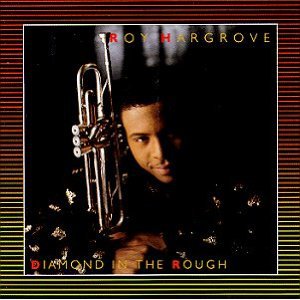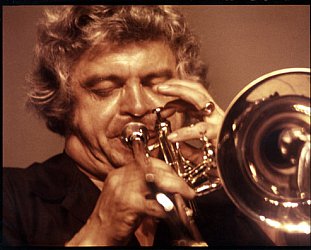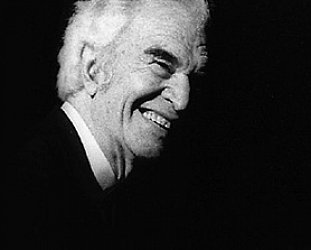Graham Reid | | 3 min read
Roy Hargrove: The Nearness of You

Roy Hargrove’s youth is the reason he doesn’t have too much to say for himself. At 20, Hargrove simply may not have all that much to talk about. After all, what can he have done?
Quite a lot, in fact.
Three years ago while still in high school, this hot jazz trumpeter out of Texas was playing on stage at the famous Caravan of Dreams Theatre in Fort Worth alongside Wynton Marsalis and his band.
He recorded a debut album (Diamond in The Rough) which had critics grasping for superlatives, and he now talks of recording with senior saxophonist Frank Morgan.
Yet the self-effacing Hargrove seems to have fallen well under the influence of his mentor Marsalis and, in barely audible voice, speaks with humility about his achievements so far.
Growing up in Waco, Texas, his first musical influences came from his father, who collected blues, r’n’b and funk records.
“Listening to that helped me to develop a love for all kinds of music so I was open to listening to anything. When my high school principal, who was a trumpeter, played me a Clifford Brown album I knew that was what I wanted to play.”
Having toyed around on comet as a child he shifted to trumpet and by the time of hearing the Brown album was already receiving some local acclaim at Dallas Arts Magnet High.
Then Wynton Marsalis made an unexpected appearance at the school to play at an assembly with the school band – of which Hargrove was a member – and to take some tuition.
From playing with the school big band in a smaller combo and taking classical trumpet studies, the 17-year-old Hargrove was as skilled and seasoned as it was posible for a young player to be.
And Marsalis was impressed.
“Wynton talked about a lot of concepts he was working on and at that time he was exploring variations of different time metres. I'd heard that kind of thing on records by Herbie Hancock and Tony Williams but Wynton explained it another way and shed some light on it."
Marsalis did more than simply guide the young trumpeter, he invited him to play a few numbers at his group's concert.
But the politely laconic Hargrove isn’t easily drawn on how he felt as he waited backstage that night, nor how much it meant to him.
“I was okay - a bit nervous – but I’m nervous every time I play. Wynton is so down-to-earth he doesn’t make you feel alienated, and I think I played maybe a couple of numbers. I don’t think my folks were there.
“My mother works nights and my father works all day so you know . . .”
Marsalis also contacted manager/producer Larry Clothier who set up tours to Japan and Europe for the teenage trumpeter, and studio work alongside some of the finest New York jazz musicians like Ricky Ford.
Hargrove downplays these matters but acknowledges the Europeans value this music more so than Americans.
He returned home, completed his high school work picked up numerous scholarships for further study and today finds himself in New York at the New School’s Jazz and Contemporary Music Programme studying part-time and working live when he can.
“A lot of my teachers at the college were on the scene in the Fifties and I’m learning a lot from their experiences and what they saw. But you can’t learn in a classroom, you have to be on the bandstand, so even when I’m not playing I’m out there hearing people.
“I’m writing my own things too, but I have been doing that since I was 15, and am learning theory now.”
And he’s recording with saxophonist Ralph Moore, who appeared as a guest on his own album, doing something with Frank Morgan and starting on his new album.
But just as Hargrove seems reluctant to talk up anything he has achieved, he also sidesteps the question whether the whole neo-conservative renaissance in jazz (of which he is a part) is marginalising other great jazz artists who don’t conform to the current revivalist fashion.
“I can appreciate other styles but I'm trying to play more structured music. People like Duke Ellington and Thelonious Monk were geniuses ahead of their time. Those musicians were part of a period where that music was not being heard. Now at least we are dealing with it and getting it out there."
And so Hargrove, after phrases which sound uncannily like his mentor, falls silent again on the phone from New York.
He might be a man of few words but, as always, his response is in the music he makes.
On the evidence of Diamond In The Rough, for the moment at least, he’s saying more than enough.
Another hot young trumpeter with an ear to the past and eye on the future.







post a comment